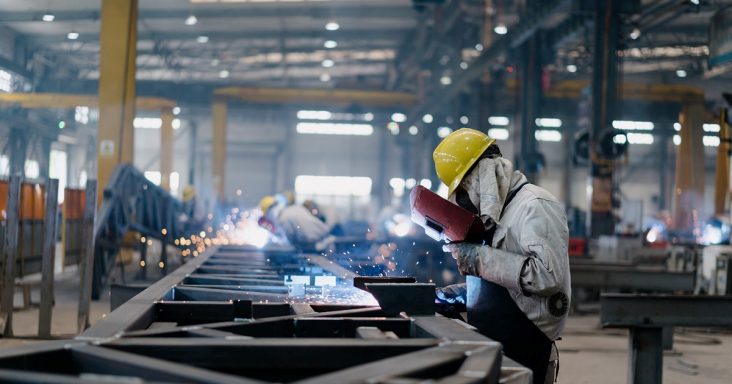ISM report: manufacturing activity contracts in April
by May 1, 2024 11:24 am 446 views

Economic activity in the manufacturing sector reversed course in April as it contracted after expanding in March, according to the Institute for Supply Management (ISM). Before the March expansion, the sector had contracted for 16 consecutive months.
On Wednesday (May 1), ISM released the Manufacturing ISM Report on Business for April, which shows that the purchasing managers’ index (PMI) fell by 1.1 percentage points to 49.2% from 50.3% in March. A reading below 50% indicates that economic activity in the manufacturing sector is contracting.
According to the April report, new orders and backlogs contracted, production increased, employment declined, supplier deliveries were faster, raw materials inventories fell, customers’ inventories were too low, prices increased, exports fell, while imports rose.
“The U.S. manufacturing sector dropped back into contraction after growing in March, the first time since September 2022 that the sector reported expansion,” said Timothy Fiore, chair of the ISM Manufacturing Business Survey Committee. “Although demand improvement slowed, output remains positive, and inputs stayed accommodative.
“Demand remains at the early stages of recovery, with continuing signs of improving conditions,” Fiore added. “Production execution continued to expand in March, but at a slower rate of growth than in prior months. Suppliers continue to have capacity but work to improve lead times due to their raw material supply chain disruptions.”
The following nine manufacturing industries reported growth in April: nonmetallic mineral products, printing and related support activities, primary metals, textile mills, electrical equipment, appliances and components, petroleum and coal products, transportation equipment, chemical products, and plastics and rubber products.
Most respondents in the April report highlighted improvement or stability in sales and demand, but some noted softening market conditions.
A respondent in the chemical products industry said, “Conditions are improving as demand is starting to recover. Costs continue to be a major concern as suppliers that rapidly increased prices in the follow-up from COVID-19 are slow to return to pre-pandemic levels.” In the transportation equipment industry, a respondent said, “Sales continue to exceed expectations in 2024. The forecasted dip in commercial vehicle production volumes appears to be avoided. Operational output is still strong, and the supply chain has the capacity to support. International supply chain risks have been minimized, but the frequency of supplier insolvencies or bankruptcies appears to be increasing.”
A respondent in the food, beverage and tobacco products industry said, “Order flow has stabilized. It took some customers longer to replenish their supply chain network after the fourth-quarter rush we commonly have. Order rates are expected to remain stable through August.” In the computer and electronic products industry, a respondent reported “some small indications of market improvement in China for our instruments and technology. Recovery is still slower than we had hoped, and macroeconomic uncertainty remains in Europe and the Middle East, as well as domestically in the U.S. with ongoing inflationary pressures and anticipation for the upcoming election.”
A respondent in the primary metals industry said, “Business is stable, and orders have been consistent. We’re quoting new business for the factory, and automotive builds continue at averages but not near maximum outputs. Workforce is stable, with the turnover ratio dropping considerably. Salaries and hourly rates increasing to meet inflationary pressures.” In the nonmetallic mineral products industry, a respondent said, “Business remained strong through the first quarter and has started strong for the second quarter. Commercial construction is still going well but on a regional basis, with the Southeast the strongest.”
A respondent in the machinery industry said, “Market conditions have definitely softened. Thankfully, our backlog is strong and will get us through the year. When conditions improve, as expected later this year, we will be in a good position to continue building the business. We are a manufacturer of automated packaging equipment for the food and beverage industry, and with a continued shortage of workers, our customers are requiring more and more automation.” In the fabricated metal products industry, a respondent said, “Business is slowing down — it has been a gradual decline for the last several months. We are not seeing new orders at last year’s level or at this year’s budgeted levels.”
A respondent in the electrical equipment, appliances and components reported flat sales on average, but sales have been volatile. In the plastics and rubber products industry, a respondent said, “The major factor affecting our business is the uncertainty of the Federal Reserve’s handling of interest rates, which will affect our customers’ business, thereby affecting ours.”
